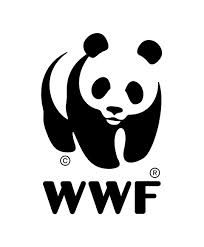WWF Report: How Food Companies Are Incentivizing Reduction of Supply Chain Greenhouse Gas Emissions
Rewards for on-farm practices critical for companies to reach Scope 3 goals
August 10, 2023 /3BL/ - Many food companies have begun looking to their supply chains for help in reaching their own emissions targets, offering incentives to their suppliers and, in particular, the farms with which they do business. A new study by the Markets Institute at World Wildlife Fund provides a landscape analysis of the types of incentive programs implemented by more than 20 companies across the industry. With more than 70% percent of food-related GHG emissions stemming from agricultural practices, companies that have set ambitious climate targets are increasingly proposing programs designed to shift behavior on farms.
“Incentives at the Farm: How Companies Are Moving from Setting Climate Targets to Delivering on Them,” draws from interviews with more than 90 experts from corporations, industry associations, and civil society groups. The report describes the variety of tactics companies are employing to reach farm-relevant sustainability outcomes, including price premiums, financing, knowledge sharing, new products or markets, and contracting. The report does not endorse any specific tactics or companies, but rather provides a state-of-play analysis to guide others in similar efforts.
“Farmer-focused incentives are a necessary tool for shifting behavior at the source of most food-related greenhouse gas emissions,” said Dr. Emily Moberg, Director of Scope 3 Carbon Measurement and Mitigation, a co-author of the study for the Markets Institute at WWF. “With only seven harvests left in which to reach our 2030 climate goals, companies must deploy effective incentives and retire ineffective ones on a much broader, faster scale.”
The study highlights factors such as shareholder pressure and governments setting climate targets, which have increasingly incentivized companies to engage in climate mitigation tactics. More than 110 national governments have set climate targets, for example, and shareholders have been putting forth proposals for environmental disclosures and progress by publicly traded companies.
“Developing and deploying incentives to address Scope 3 GHG emissions is no small feat, especially for the food sector,” said Katherine Devine, Director of Business Case Development at the Markets Institute and a co-author of the study. “With regional differences, crop and farmer diversity, thousands of products in some supply chains, and other challenges, there is no one-size-fits-all solution. We need to learn faster to address climate change’s existing and growing impacts.”
For companies in the food sector, a substantial amount – often more than 90 percent – of their emissions are Scope 3, originating in their supply chains. For companies with ambitious climate targets, including limiting warming to 1.5 degrees C by 2030, the big question is how those targets will be achieved.
###
Supporting Quotes:
“McCormick & Company has committed to achieving net zero emissions by 2050. In the near-term, we have set goals aligned with the Paris Agreement and verified by the Science Based Target initiative which include a 42% reduction in our Scope 3 emissions by 2030. Like many companies with a global supply chain, our greatest opportunity is Scope 3 emissions, which account for over 90% of our carbon footprint. Since these emissions are not under McCormick’s direct control, it is imperative for us, and other companies, to work in partnership with our suppliers to address this challenge. By incentivizing them to participate, we can drive impact at scale in a targeted and efficient manner, benefitting all stakeholders including the planet we all share.”
-Michael Okoroafor, Chief Sustainability Officer, McCormick & Company
“We believe that farmers are the original stewards of the land, and as the stewardship needs of our industry evolve and we begin measuring and influencing Scope 3 emissions, farmers are being called on to do more. Truterra is honored to be involved in programs such as the Land Stewardship Project that recognize the need to provide incentives to farmers to help offset the costs and risks associated with the adoption of conservation practices.”
-Tom Ryan, President, Truterra, LLC
###
Media Contact
Lorin Hancock, Lorin.Hancock@wwfus.org
Additional resources
Notes
Inclusion in the paper does not indicate that WWF endorses a particular brand or its approach to communications about a sustainability program, or a recommendation of specific agricultural practices. The study was funded by the Gordon and Betty Moore Foundation.
The Markets Institute at WWF identifies global issues, trends, and tools around some of the most pressing challenges of our time, including the production of food in the 21st Century. Our goal is to increase the speed and scale of solutions to ensure the sustainability of our future food and soft commodities. For more information, go to marketsinstitute.org.
About WWF
WWF is one of the world’s leading conservation organizations, working in nearly 100 countries for over half a century to help people and nature thrive. With the support of more than 5 million members worldwide, WWF is dedicated to delivering science-based solutions to preserve the diversity and abundance of life on Earth, halt the degradation of the environment and combat the climate crisis. Visit http://www.worldwildlife.org to learn more, and keep up with the latest conservation news by following @WWFNews on Twitter and signing up for our newsletter and news alerts here.

